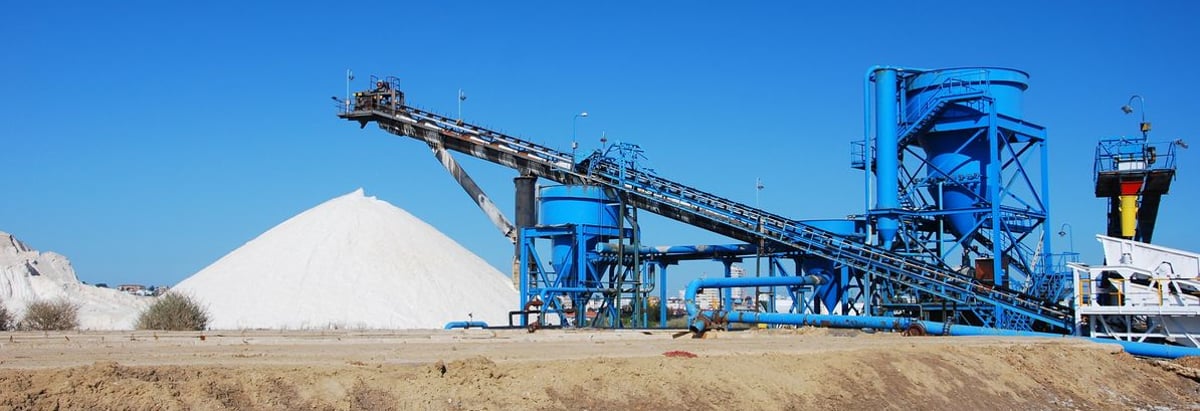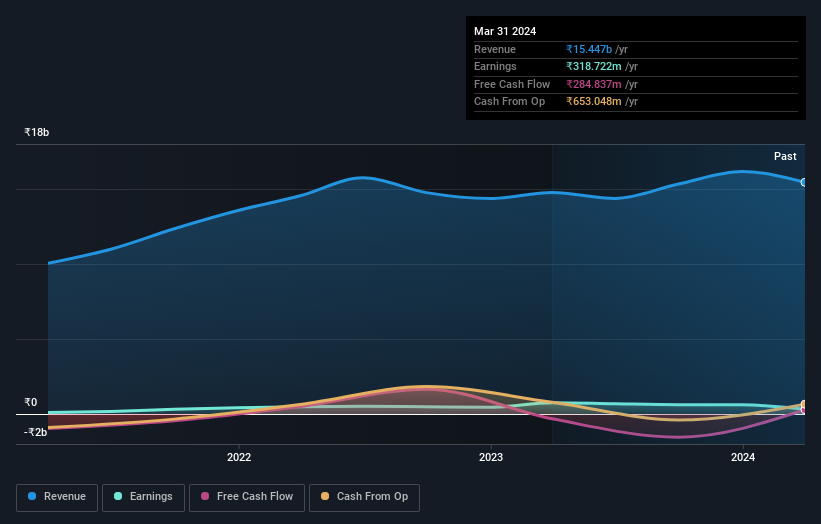- India
- /
- Metals and Mining
- /
- NSEI:POCL
Pondy Oxides And Chemicals Limited's (NSE:POCL) last week's 10% decline must have disappointed individual investors who have a significant stake

Key Insights
- Pondy Oxides And Chemicals' significant individual investors ownership suggests that the key decisions are influenced by shareholders from the larger public
- The top 12 shareholders own 48% of the company
- Insider ownership in Pondy Oxides And Chemicals is 48%
To get a sense of who is truly in control of Pondy Oxides And Chemicals Limited (NSE:POCL), it is important to understand the ownership structure of the business. We can see that individual investors own the lion's share in the company with 52% ownership. That is, the group stands to benefit the most if the stock rises (or lose the most if there is a downturn).
While insiders, who own 48% shares weren’t spared from last week’s ₹1.0b market cap drop, individual investors as a group suffered the maximum losses
Let's take a closer look to see what the different types of shareholders can tell us about Pondy Oxides And Chemicals.
View our latest analysis for Pondy Oxides And Chemicals

What Does The Lack Of Institutional Ownership Tell Us About Pondy Oxides And Chemicals?
We don't tend to see institutional investors holding stock of companies that are very risky, thinly traded, or very small. Though we do sometimes see large companies without institutions on the register, it's not particularly common.
There could be various reasons why no institutions own shares in a company. Typically, small, newly listed companies don't attract much attention from fund managers, because it would not be possible for large fund managers to build a meaningful position in the company. Alternatively, there might be something about the company that has kept institutional investors away. Institutional investors may not find the historic growth of the business impressive, or there might be other factors at play. You can see the past revenue performance of Pondy Oxides And Chemicals, for yourself, below.

We note that hedge funds don't have a meaningful investment in Pondy Oxides And Chemicals. Because actions speak louder than words, we consider it a good sign when insiders own a significant stake in a company. In Pondy Oxides And Chemicals' case, its Top Key Executive, Anil Bansal, is the largest shareholder, holding 17% of shares outstanding. Ashish Bansal is the second largest shareholder owning 13% of common stock, and Padam Bansal holds about 12% of the company stock. Interestingly, the second-largest shareholder, Ashish Bansal is also Chief Executive Officer, again, pointing towards strong insider ownership amongst the company's top shareholders.
On studying our ownership data, we found that 12 of the top shareholders collectively own less than 50% of the share register, implying that no single individual has a majority interest.
Researching institutional ownership is a good way to gauge and filter a stock's expected performance. The same can be achieved by studying analyst sentiments. We're not picking up on any analyst coverage of the stock at the moment, so the company is unlikely to be widely held.
Insider Ownership Of Pondy Oxides And Chemicals
The definition of an insider can differ slightly between different countries, but members of the board of directors always count. The company management answer to the board and the latter should represent the interests of shareholders. Notably, sometimes top-level managers are on the board themselves.
Most consider insider ownership a positive because it can indicate the board is well aligned with other shareholders. However, on some occasions too much power is concentrated within this group.
Our information suggests that insiders maintain a significant holding in Pondy Oxides And Chemicals Limited. Insiders own ₹4.4b worth of shares in the ₹9.1b company. This may suggest that the founders still own a lot of shares. You can click here to see if they have been buying or selling.
General Public Ownership
The general public, mostly comprising of individual investors, collectively holds 52% of Pondy Oxides And Chemicals shares. This level of ownership gives investors from the wider public some power to sway key policy decisions such as board composition, executive compensation, and the dividend payout ratio.
Next Steps:
It's always worth thinking about the different groups who own shares in a company. But to understand Pondy Oxides And Chemicals better, we need to consider many other factors. For example, we've discovered 3 warning signs for Pondy Oxides And Chemicals that you should be aware of before investing here.
If you would prefer check out another company -- one with potentially superior financials -- then do not miss this free list of interesting companies, backed by strong financial data.
NB: Figures in this article are calculated using data from the last twelve months, which refer to the 12-month period ending on the last date of the month the financial statement is dated. This may not be consistent with full year annual report figures.
New: Manage All Your Stock Portfolios in One Place
We've created the ultimate portfolio companion for stock investors, and it's free.
• Connect an unlimited number of Portfolios and see your total in one currency
• Be alerted to new Warning Signs or Risks via email or mobile
• Track the Fair Value of your stocks
Have feedback on this article? Concerned about the content? Get in touch with us directly. Alternatively, email editorial-team (at) simplywallst.com.
This article by Simply Wall St is general in nature. We provide commentary based on historical data and analyst forecasts only using an unbiased methodology and our articles are not intended to be financial advice. It does not constitute a recommendation to buy or sell any stock, and does not take account of your objectives, or your financial situation. We aim to bring you long-term focused analysis driven by fundamental data. Note that our analysis may not factor in the latest price-sensitive company announcements or qualitative material. Simply Wall St has no position in any stocks mentioned.
About NSEI:POCL
Pondy Oxides And Chemicals
A secondary lead manufacturer company, produces and sells lead, lead alloys, and plastic additives in India.
Flawless balance sheet second-rate dividend payer.


